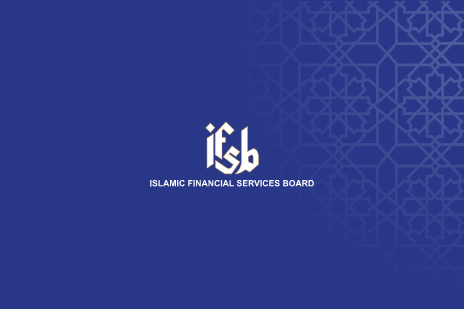The 11th edition of the IFSB-INCEIF Executive Forum, themed Creativity and Innovation in Islamic financial products: Standardisation and Competitiveness, aims to push the current boundaries and explore the capabilities of the Islamic finance industry to innovate and develop an array of products to satisfy different customer demand segments. This Executive Forum also aims to delve into and draw upon the market player's perspectives on product development and innovation in Islamic finance. Innovation and creativity will be the buzz words of this Executive Forum. It aims to provide a platform for presenting diverse sets of product innovations, where participants are expected to enrich the discussions with suggestions for enhancements towards reaching greater heights for the industry. This Executive Forum will also highlight the challenges facing market players as well as banking supervisors in ensuring that robust Shari’ah governance structures are in place during product design and execution. It is expected that the participants, from among industry players and supervisors, will brainstorm and participate in in-depth discussions on a wide range of Islamic finance instruments. Among them equity/risk-sharing structures, consumer finance, structured trade finance and other instruments serving niche markets. These sessions will aim at illuminating issues related to promoting both standardisation with healthy competition in Islamic banking, Takaful, ICM while at the same time exploring the potential use of, and contribution to, Fintech and Financial inclusion, respectively. Confirmed expert speakers in the Executive Forum include: Dr. Salman Syed Ali (IRTI-IDB Group), Professor Dr. Younes Soualhi (ISRA), Professor Dr. Syed Abdul Hamid Al-Junid (INCEIF), Owais Ansari (FWU Group, Germany), Wan Norhaziki Wan Abdul Halim (Asian Finance Bank), Roslan Abdul Razak (Perbadanan Waqf Nasional Berhad) and Assoc. Prof. Ahcene Lahsasna (Malaysian Financial Planning Council), Umar Munshi (Ethis Ventures), Abdul Rahman Mohd Yusoff (OCBC Al Amin), Hizamuddin Jamalluddin (Bank Islam Malaysia). The Executive Forum is a paying event. Special rates are offered to all member of the IFSB. Enjoy group discount of 10% when you register 3 or more participants from the same organisation. (Not applicable to subsidiaries and affiliated companies) For further enquiries, please email to Mr. Ifran Tarmizi at [email protected] . Programme - Event Session(s) Date Time Topics Day 1 16/08/2017 08:30 - 09:30 Morning Coffee and Registration 09:30 - 09:45 Opening Address MR. ZAHID UR REHMAN KHOKHER, Acting Secretary General, IFSB 09:45 - 11:15 Session 1: Overview of Islamic Banking Products – Principles and Parameters Innovative structures and delivering impactful services Legal and taxation frameworks and products innovations in IFSI Product Innovations in the IFSI – Market-driven vs Regulators requirements SPEAKER: DR. SALMAN SYED ALI, Senior Research Economist, IRTI-IDB Group 11:15 - 11:45 Group Photo and Coffee Break 11:45 - 13:15 Session 2: Consumer Financing Products – Strategies for Innovation Consumer Needs: The starting point for Islamic finance products Marketing Islamic Products: Efficiency, Demand and Supply Transparency in innovation of Islamic finance products SPEAKER: TUAN HJ. ABDUL RAHMAN MOHD. YUSOFF, Head of Shariah, OCBC Al Amin Bank Berhad 13:15 - 14:30 Lunch 14:30 - 16:30 Session 3: Shari’ah Rules in Products Development: Branding , Ethics and Innovation Shari’ah Parameters in Designing New Products: An industry perspective Ijtihad in the development of Islamic finance products MODERATOR: MR. ROSLAN ABDUL RAZAK, Head of Project Development and Structuring, Perbadanan Waqf Nasional Berhad, Malaysia SPEAKERS: MR. WAN NORHAZIKI WAN ABDUL HALIM, Vice President and Head of Shariah, Asian Finance Bank, DR. YOUNES SOUALHI, Head of the Islamic Banking Unit, ISRA 16:30 - 17:00 Coffee Break Day 2 17/08/2017 08:30 - 09:30 Morning Coffee 09:30 - 11:00 Session 4: Innovation in Takaful Avenue for the Industry’s Growth Strategies to expand the Takaful industry Increasing consumer satisfaction in Takaful products Takaful Operators: Achieving commercial targets and beyond SPEAKER: MR. OWAIS ANSARI, Member of the Board of FWU Group, Germany 11:00 - 11:30 Coffee Break 11:30 - 13:00 Session 5: Fintech and Leveraging on the Industry’s Technological Advancements Fintech avenues in enhancing consumer satisfaction Innovation in financial services, the role of Islamic social finance Fintech for Financial inclusion in the Islamic financial services industry (IFSI) sphere SPEAKER: MR. MOHAMMAD RIDZUAN ABDUL AZIZ, Chief Executive Officer, Sedania As Salam Capital, Malaysia 13:00 - 14:00 Lunch and Prayers 14:00 - 16:00 Session 6: Panel Discussion: Innovation in Finance Products: Towards Standardisation and Competitiveness Islamic finance products as tools for financial integration The uniqueness of equity finance and risk for Islamic financial institutions Islamic finance to support international trade MODERATOR: PROFESSOR DR. SYED ABDUL HAMID AL-JUNID, INCEIF PANELIST: MR. UMAR MUNSHI, Founder/ CEO, Ethis Ventures, Singapore PANELIST: ASSOC. PROF. AHCENE LAHSASNA, Vice President, Research and Publication, Malaysian Financial Planning Council PANELIST: MR HIZAMUDDIN JAMALLUDDIN, Group Chief Strategy Officer, Bank Islam Malaysia 16:00 - 16:30 Closing & Certificate Giving Ceremony MR. DZALIN AYUB, Acting President and Chief Executive Officer 16:30 - 17:00 Coffee Break
